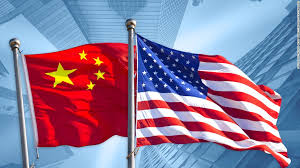China’s Xi Jinping pledges to cut auto tariffs amid US trade clash

Chinese President Xi Jinping on Tuesday said his government would “significantly lower” tariffs on vehicle imports this year as part of efforts to further open its giant economy to the world.
The pledge addresses one of the gripes of US President Donald Trump, who has threatened to impose new tariffs on $ 150 billion of Chinese goods in a tense trade dispute between the world’s two largest economies.
During an eagerly awaited speech at a development conference on the tropical Chinese island of Hainan, Xi billed the cut in vehicle tariffs and a series of other measures as “a new phase of opening up.” But many of the steps he outlined are ones Beijing has already proposed in some form.
For example, the Chinese government had promised in November to “gradually and properly” reduce tariffs on imported vehicles, though it didn’t give a specific time frame for doing so.
Trump complained as recently as Monday about China’s 25% tariff on foreign cars, pointing out that it’s far higher than the 2.5% tariff the United States charges for imported cars. “Does that sound like free or fair trade,” Trump tweeted. “No, it sounds like STUPID TRADE – going on for years!”
Related: US-China trade battle: Catch up here
Stock markets, which have plunged repeatedly in recent weeks over fears of a potential US-China trade war, responded positively to Xi’s comments. Hong Kong’s Hang Seng Index and Dow futures in the United States were up more than 1% after the speech.
But it’s unclear how much Xi’s pledges Tuesday will help defuse the trade tensions between the two sides. China has already proposed new tariffs on $ 50 billion of US goods and threatened to retaliate further.
“Xi outlined reforms that had been well trailed beforehand, including in the financial and automotive sectors, so although well received by some investors, they do not provide the ‘upside surprise’ that might have mollified the Trump administration,” said Tom Rafferty, regional manager for China at the Economist Intelligence Unit, a research firm.
Related: Trump promises to ‘make it up’ to farmers hit by China tariffs
But other analysts said Xi’s speech could help lay the groundwork for a compromise.
“Clearly, he prefers a cool-headed approach toward the dispute,” said Larry Hu, a China-focused economist at investment bank Macquarie Capital. Hu predicted that the current US-China clash over trade would eventually end with some kind of concessions from Beijing.
Xi didn’t mention Trump or the United States by name in his speech. But he stressed the need for tackling problems through dialogue rather than confrontation and complained about limits other governments have put on trade with China.
“We hope developed countries will stop imposing restrictions on normal and reasonable trade of hi-tech products and relax export controls on such trade with China,” he said.
The other measures he promised China would take include improving access to its financial sector and easing restrictions as soon as possible on foreign ownership of companies operating in China’s auto, aerospace and shipbuilding industries.
He also pledged to strengthen the protection of intellectual property inside China, which has been a focal point of criticism from the Trump administration, and increase China’s imports from other countries by lowering some tariffs.
“China does not seek a trade surplus,” he said.
Trump has often slammed China’s huge surplus in the trade of goods with the United States, which reached $ 375 billion last year, according to US data.
Chinese state media disputed the idea that the planned changes outlined by Xi were a response to the current trade dispute with the United States.
“These measures are based on our consistent policy and stance, our own development and our own pace,” read a commentary published online by the People’s Daily, the official newspaper of the ruling Communist Party. It said that “linking China’s strategic choice to the current China-US trade frictions” was a “baseless interpretation.”
